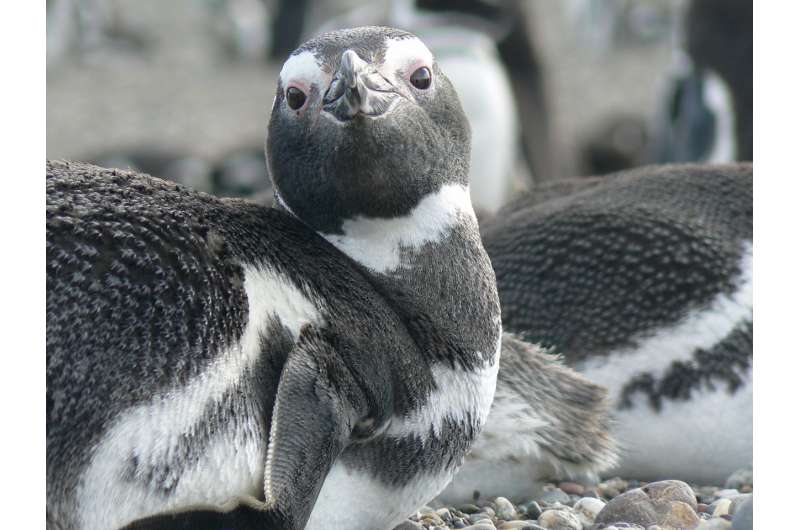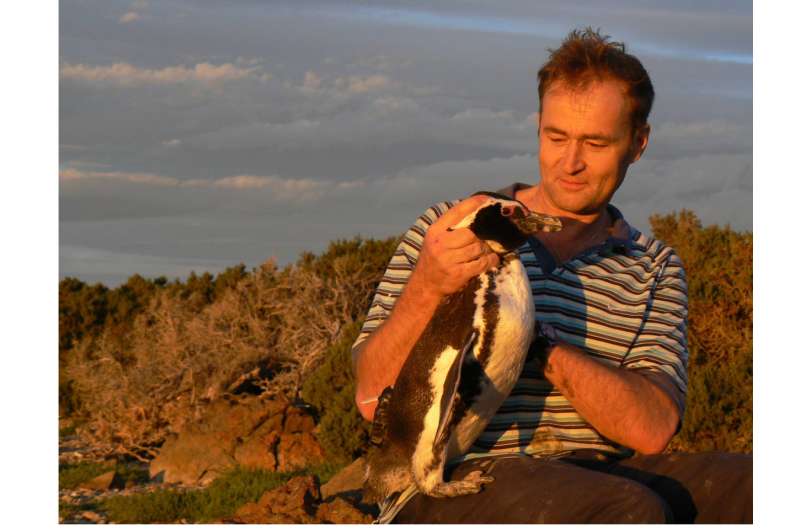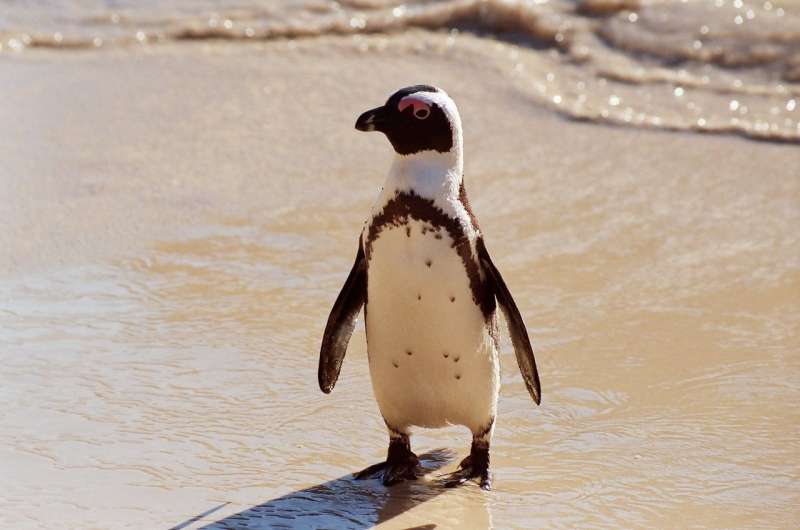Animal populations are shrinking due to their high-risk food-finding strategies

A study using animal-attached technology to measure food consumption in four very different wild vertebrates has revealed that animals using a high-risk strategy to find rarer food are particularly susceptible to becoming extinct, as they fail to gather food for their young before they starve.
In the first study of its kind, a team of researchers led by Swansea University used thumbnail-sized electronic tags to record the movement of a number of individual condors, cheetahs, penguins and sheep in Argentina, South Africa and Northern Ireland over a six-year period.
Nicknamed the "Daily Diary", the tags record a mass of data—everything from the animal's minute movements through space and time, to the temperature of its environment and light levels.
The results from the tags were used to measure:
- The probability that each animal finds food items.
- The size of the food items.
- The effort used to find the food.
- The effort used for all other activities such as rest, play etc.
Professor Rory Wilson of Swansea University, a world-leading expert on animal movement and lead author of the study, said: "We know that animal populations across the world are taking a hit, with the most charismatic animals like lions and cheetahs being among the worst affected, but up until now it hasn't been clear why.
"Our study has revealed that animals that use a high-risk gambling strategy to find food, like lions and tigers, which have to search for long periods before they get lucky and find prey, are more likely to fail to accrue the energy they need to breed, compared to animals that adopt a low-risk gambling strategy, like herbivores such as zebras."

The average time the young of each species can survive without food depends on their size (larger young can survive for longer) but newly hatched or newly born young of none of the species studied can live without food for more than a few days.
The catastrophic results of these animals using a high-risk food-finding strategy is highlighted in the study by comparing two penguin species. While Magellanic penguins, which live in Argentina, can find fish easily, indicating that the odds are good for them, African penguins, whose population has been declining in southern Africa for decades, have very poor odds for their food-finding stakes.
"It appears that commercial fishing has changed the game rules for the worse for the African penguins. When animals are taking rare prey anyway, even small changes in the ecosystem stemming from human activities can be the straw that breaks the camel's back in terms of breeding success, and this seems to be the case for the African penguin, whose population is now just 1% of what it was 100 years ago," said Professor Wilson.

The researchers now hope that their model can be used to predict the fortunes of species across the globe, which could prove pivotal in helping to formulate conservation plans.
The paper, entitled Luck in Food-finding Affects Individual Performance and Population Trajectories, is published in Current Biology.
More information: Luck in Food-finding Affects Individual Performance and Population Trajectories, Current Biology (2018). www.cell.com/current-biology/f … 0960-9822(18)31363-0
Journal information: Current Biology
Provided by Swansea University
















